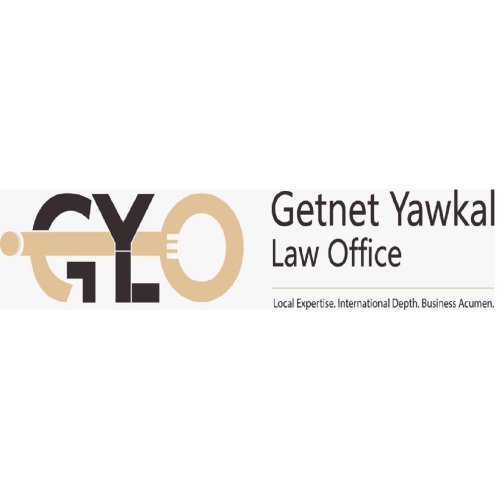Best New Business Formation Lawyers in Ethiopia
Share your needs with us, get contacted by law firms.
Free. Takes 2 min.
Or refine your search by selecting a city:
List of the best lawyers in Ethiopia
About New Business Formation Law in Ethiopia
New Business Formation in Ethiopia involves the legal procedures and regulations entrepreneurs must follow to establish a business officially. The Ethiopian landscape is governed by specific laws that dictate the requirements for registering a company, obtaining licenses, and ensuring compliance with local regulations. The Commercial Code of Ethiopia is principal, mandating the formation and operation of different business entities. The Ethiopian Investment Commission (EIC) also plays a pivotal role in facilitating investment and providing guidance for foreign and domestic investors.
Why You May Need a Lawyer
Starting a business entails navigating through complex legal frameworks, making it beneficial to consult with a lawyer. Some common scenarios requiring legal assistance in New Business Formation include:
- Interpreting and complying with the Commercial Code of Ethiopia.
- Choosing the appropriate business structure (e.g., sole proprietorship, partnership, corporation).
- Drafting and reviewing contracts and agreements.
- Understanding tax obligations and incentives.
- Ensuring compliance with local laws and regulations.
- Navigating property acquisition and real estate contracts if necessary.
- Understanding labor laws in case of hiring employees.
- Managing intellectual property rights if applicable.
Local Laws Overview
When forming a business in Ethiopia, several key laws and regulations govern the process:
- The Commercial Code of Ethiopia: Provides the legal framework for registering and operating a business.
- The Investment Proclamation No. 1180/2020: Details the requirements for foreign and local investors to engage in business activities.
- Taxation Laws: Outlines the tax obligations for different types of business entities.
- Labor Proclamation: Governs employment relations, employee rights, and employer duties.
- Intellectual Property Laws: Protects trademarks, copyrights, and patents, crucial for certain businesses.
- Trade laws and regulations: Ensure fair competition and consumer protection.
Frequently Asked Questions
1. What types of business entities can I establish in Ethiopia?
You can establish various types of entities in Ethiopia, including sole proprietorships, partnerships, private limited companies, and share companies, each with its own legal and financial implications.
2. How do I register a company in Ethiopia?
You must prepare the necessary documents, including articles of association and memorandum, and submit them to the Ministry of Trade or EIC for approval and registration.
3. Are there any restrictions on foreign ownership?
While foreign businesses are welcome, certain sectors are restricted to Ethiopian nationals, and some require joint ventures with local partners.
4. What are the tax implications I should be aware of?
Businesses are subject to income tax, Value Added Tax (VAT), and possibly other local taxes. It is important to consult a tax advisor or lawyer for specific obligations.
5. How can I protect my business’s intellectual property?
Register your trademarks, patents, and copyrights with the Ethiopian Intellectual Property Office to ensure protection under local intellectual property laws.
6. What licenses or permits might be needed?
The required licenses and permits depend on the business type and sector. Common permits include trade licenses and specific operational licenses, such as for manufacturing or financial services.
7. How do I employ staff legally in Ethiopia?
You need to comply with the Ethiopian Labor Proclamation, which outlines employment conditions, contracts, and employee rights.
8. What incentives are available for new businesses?
The government offers various incentives, such as tax breaks and duty-free import of capital goods, particularly in priority sectors like manufacturing and agribusiness.
9. Can businesses repatriate profits?
Yes, foreign investors are allowed to repatriate profits, subject to certain conditions and approval from the National Bank of Ethiopia.
10. What is the role of the Ethiopian Investment Commission?
The EIC facilitates investment procedures for both local and foreign investors, providing support in acquiring permits and ensuring compliance with Ethiopian laws.
Additional Resources
To further assist with New Business Formation, consider these resources:
- Ethiopian Investment Commission (EIC): Offers guidance for investors.
- Ministry of Trade: Handles company registration and trade matters.
- Ethiopian Chamber of Commerce and Sectoral Associations: Provides networking and business support.
- Local Law Firms: Offer legal advice and assistance.
Next Steps
If you require legal assistance in forming a business in Ethiopia, consider the following steps:
- Identify your specific needs and questions relating to business formation.
- Seek recommendations or conduct research to find a reputable local lawyer or law firm experienced in commercial law.
- Arrange consultations to obtain advice tailored to your business goals and situation.
- Engage the lawyer to assist in drafting, reviewing, and filing the necessary paperwork for your business registration and compliance.
Lawzana helps you find the best lawyers and law firms in Ethiopia through a curated and pre-screened list of qualified legal professionals. Our platform offers rankings and detailed profiles of attorneys and law firms, allowing you to compare based on practice areas, including New Business Formation, experience, and client feedback.
Each profile includes a description of the firm's areas of practice, client reviews, team members and partners, year of establishment, spoken languages, office locations, contact information, social media presence, and any published articles or resources. Most firms on our platform speak English and are experienced in both local and international legal matters.
Get a quote from top-rated law firms in Ethiopia — quickly, securely, and without unnecessary hassle.
Disclaimer:
The information provided on this page is for general informational purposes only and does not constitute legal advice. While we strive to ensure the accuracy and relevance of the content, legal information may change over time, and interpretations of the law can vary. You should always consult with a qualified legal professional for advice specific to your situation.
We disclaim all liability for actions taken or not taken based on the content of this page. If you believe any information is incorrect or outdated, please contact us, and we will review and update it where appropriate.
Browse new business formation law firms by city in Ethiopia
Refine your search by selecting a city.

















